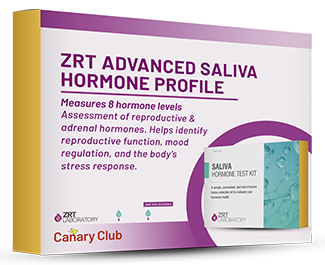Interstitial Cystitis (IC), often called "painful bladder syndrome," is a condition is characterized by urinary frequency, urgency, and pelvic pain.

Not always localized to the pelvis and bladder, pain may occur in the lower back, vagina, and lower abdomen and is often aggravated at the onset of menstruation as well as after intercourse. IC is overwhelmingly more common in women than in men, with an epidemiologic incidence that is estimated to be as high as 510 per 100,000 women. IC is principally diagnosed by exclusion, after ruling out a bladder infection, kidney stones, etc. It may have a profound impact on an afflicted individual's quality of life and may be associated with psychological disorders including depression and/or anxiety.
Interstitial Cystitis is a poorly understood, chronic condition and its cause is unclear. The goal of treatment is generally to reduce pain and urinary frequency, and treatments may include multiple weeks of bladder instillations, stress management, anti-inflammatories, nerve stimulation, antidepressants, anticholinergic-antispasmodic agents, and even surgery. Many individuals suffering from interstitial cystitis seek complementary and alternative care including acupuncture, pelvic floor therapy and diet modification, and hormone balancing.
Hormonal Connection to Interstitial Cystitis
It is possible to address symptoms of Interstitial Cystitis by assessing adrenal health and diurnal cortisol levels. Cortisol, our body's own natural anti-inflammatory agent, is produced by the adrenal cortex and secreted in the highest amounts in the morning with a gradual tapering of levels throughout the day.
 Cortisol is most well-known for being the long-term stress hormone and usually manifests as problematic when production is elevated for long periods of time. However, cortisol is beneficial to the body when within the normal range. Its anti-inflammatory nature assists in keeping chronic inflammation and pain at bay.
Cortisol is most well-known for being the long-term stress hormone and usually manifests as problematic when production is elevated for long periods of time. However, cortisol is beneficial to the body when within the normal range. Its anti-inflammatory nature assists in keeping chronic inflammation and pain at bay.
When cortisol production is too low, as seen in individuals with all stages of adrenal fatigue, it can alter the body's ability to control inflammation. This, in turn, allows chronic inflammatory conditions such as Interstitial Cystitis to ensue.
Research has demonstrated just how important optimal cortisol levels may be in controlling the symptoms associated with IC. Findings indicate that diurnal cortisol patterns in IC patients may have significant treatment implications. IC patients with sub-optimal morning salivary cortisol levels of less than 12.5 nmol/l were found to be over 12 times more likely to report urinary urgency than those patients with levels above that level! Patients with higher total daily free cortisol levels reported overall decreased symptoms.
This information indicates that diurnal cortisol testing can help you in developing a treatment plan for your IC. Boosting cortisol levels through nutritional, glandular or herbal support or with cortisol replacement therapy can help you gain long-term relief from symptoms and lead to a pain-free and symptom-free life.
Canary Club at-home adrenal/cortisol tests:
Adrenal Stress Test: measures cortisol (4x) as well as DHEA-S for overall adrenal health
Diurnal Cortisol Test: only cortisol (4 tests in one day)
Cortisol Awakening Response: only cortisol (7 tests in one day) - shows how fast (or slow) your cortisol rises after waking.
Cortisol testing is also included in all our Comprehensive (Thyroid + Hormones) Panels and Hormone (adrenal/sex hormone) Saliva Tests.
Canary Club has a wide variety of at-home hormone and neurotransmitter tests from which to choose. These can indicate imbalances that cause or exacerbate chronic anxiety. This information is a great first step on the path to long-term well-being. Here is a short list of recommended tests: Canary Club is the place where you can come to better understand your condition, whether it is mild, moderate, or severe. Our goal is to help you find the information you need in order to effectively manage stress and live a more vibrant and vital life.
ZRT Advanced Saliva Profile
 See our ZRT Advanced Saliva Profile to check your adrenal and reproductive hormone levels.
See our ZRT Advanced Saliva Profile to check your adrenal and reproductive hormone levels.
Advanced Saliva Test Kit Includes:
- Estradiol (E2), Progesterone (Pg), and Testosterone (T) - known as the three major sex steroid hormones,
- Adrenal Hormones:
- DHEA-S (DS), and,
- Diurnal Cortisol (sampled 4x), showing your full daily cortisol cycle.
Canary Club Advanced Saliva Hormone Profile is also known as ZRT Saliva Profile III.
Available Add-ons:
You will be able to include these add-ons during the ordering process for the Advanced Saliva Profile.
Available add-ons: E1 Estrone and E3 Estriol
Additional Stress-Related Tests
- Cortisol Awakening Response
- Adrenal Stress Test
- Diurnal Cortisol 4x
- Women's Sex & Stress Hormone Panel
Additional Resources:
References:
Susan K Lutgendorf, et.al. Diurnal Cortisol Variations and Symptoms in Patients with Interstitial Cystitis. The Journal of Urology. Vol 167, 1338-1334 March 2002.
Joseph E Scherger, MD, MPH et al., Interstitial Cystitis 2007.

